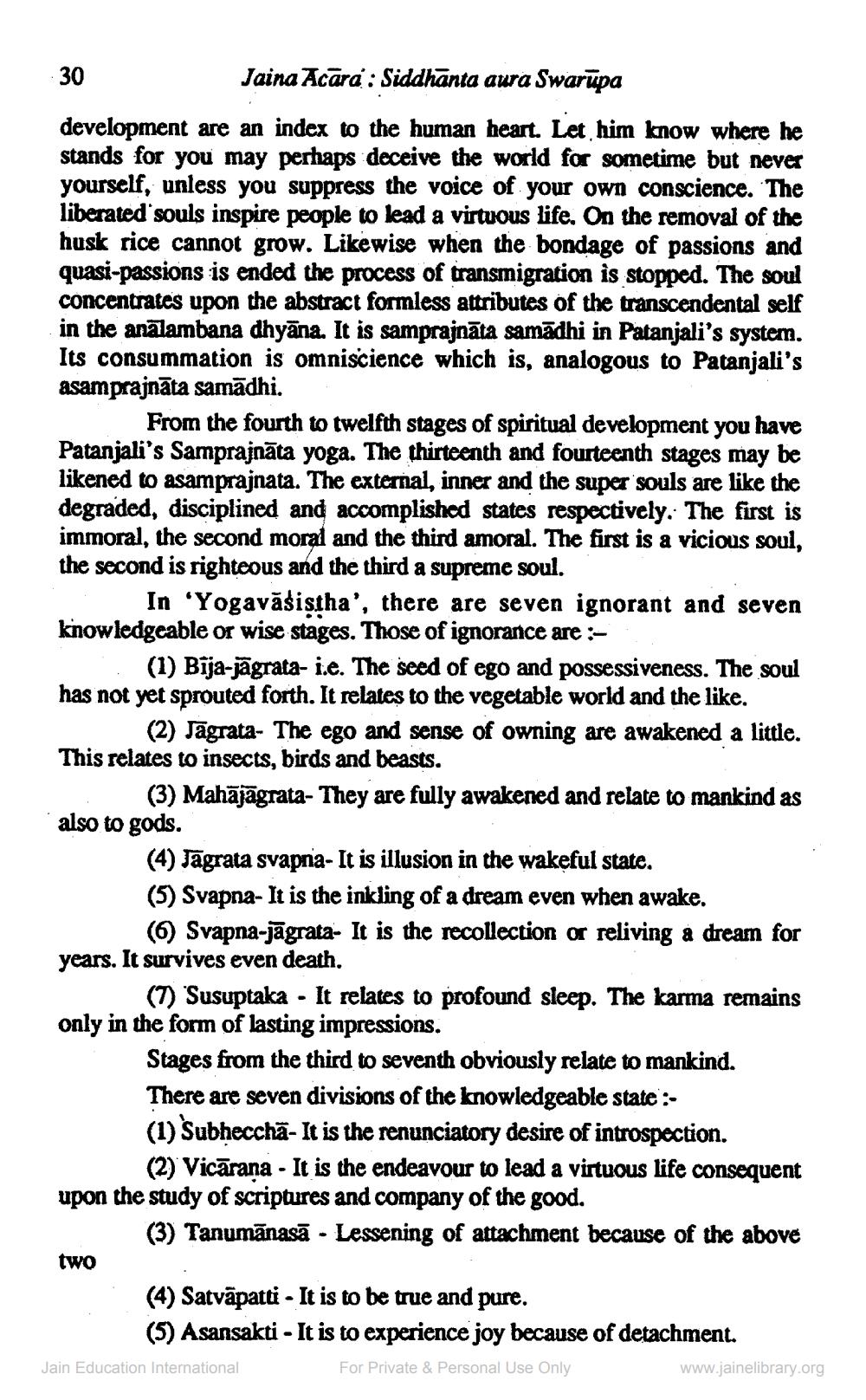________________
Jaina Acara: Siddhanta aura Swarupa
development are an index to the human heart. Let him know where he stands for you may perhaps deceive the world for sometime but never yourself, unless you suppress the voice of your own conscience. The liberated souls inspire people to lead a virtuous life. On the removal of the husk rice cannot grow. Likewise when the bondage of passions and quasi-passions is ended the process of transmigration is stopped. The soul concentrates upon the abstract formless attributes of the transcendental self in the analambana dhyana. It is samprajnāta samādhi in Patanjali's system. Its consummation is omniscience which is, analogous to Patanjali's asamprajnāta samādhi.
30
From the fourth to twelfth stages of spiritual development you have Patanjali's Samprajnāta yoga. The thirteenth and fourteenth stages may be likened to asamprajnata. The external, inner and the super souls are like the degraded, disciplined and accomplished states respectively. The first is immoral, the second moral and the third amoral. The first is a vicious soul, the second is righteous and the third a supreme soul.
In 'Yogavasistha', there are seven ignorant and seven knowledgeable or wise stages. Those of ignorance are :
(1) Bija-jāgrata- i.e. The seed of ego and possessiveness. The soul has not yet sprouted forth. It relates to the vegetable world and the like.
(2) Jagrata- The ego and sense of owning are awakened a little. This relates to insects, birds and beasts.
(3) Mahājāgrata- They are fully awakened and relate to mankind as also to gods.
(4) Jagrata svapna- It is illusion in the wakeful state.
(5) Svapna- It is the inkling of a dream even when awake.
(6) Svapna-jāgrata- It is the recollection or reliving a dream for years. It survives even death.
(7) Susuptaka - It relates to profound sleep. The karma remains only in the form of lasting impressions.
Stages from the third to seventh obviously relate to mankind. There are seven divisions of the knowledgeable state :(1) Subheccha- It is the renunciatory desire of introspection.
(2) Vicarana - It is the endeavour to lead a virtuous life consequent upon the study of scriptures and company of the good.
(3) Tanumānasā - Lessening of attachment because of the above
two
(4) Satvapatti - It is to be true and pure.
(5) Asansakti - It is to experience joy because of detachment. For Private & Personal Use Only
Jain Education International
www.jainelibrary.org




